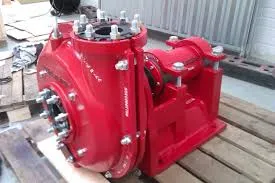Thai
- Afrikaans
- Albanian
- Amharic
- Arabic
- Armenian
- Azerbaijani
- Basque
- Belarusian
- Bengali
- Bosnian
- Bulgarian
- Catalan
- Cebuano
- Corsican
- Croatian
- Czech
- Danish
- Dutch
- English
- Esperanto
- Estonian
- Finnish
- French
- Frisian
- Galician
- Georgian
- German
- Greek
- Gujarati
- Haitian Creole
- hausa
- hawaiian
- Hebrew
- Hindi
- Miao
- Hungarian
- Icelandic
- igbo
- Indonesian
- irish
- Italian
- Japanese
- Javanese
- Kannada
- kazakh
- Khmer
- Rwandese
- Korean
- Kurdish
- Kyrgyz
- Lao
- Latin
- Latvian
- Lithuanian
- Luxembourgish
- Macedonian
- Malgashi
- Malay
- Malayalam
- Maltese
- Maori
- Marathi
- Mongolian
- Myanmar
- Nepali
- Norwegian
- Norwegian
- Occitan
- Pashto
- Persian
- Polish
- Portuguese
- Punjabi
- Romanian
- Russian
- Samoan
- Scottish Gaelic
- Serbian
- Sesotho
- Shona
- Sindhi
- Sinhala
- Slovak
- Slovenian
- Somali
- Spanish
- Sundanese
- Swahili
- Swedish
- Tagalog
- Tajik
- Tamil
- Tatar
- Telugu
- Thai
- Turkish
- Turkmen
- Ukrainian
- Urdu
- Uighur
- Uzbek
- Vietnamese
- Welsh
- Bantu
- Yiddish
- Yoruba
- Zulu
Telephone: +86 13120555503
Email: frank@cypump.com
ต.ค. . 14, 2024 13:34 Back to list
Diesel-Powered Slurry Pump for Efficient Fluid Transport and Heavy-Duty Applications
Understanding Diesel Slurry Pumps A Comprehensive Overview
In various industrial sectors, the need for efficient and reliable pumping systems is paramount. One such system that has gained prominence is the diesel slurry pump. These pumps are specifically designed to handle the complex requirements of transferring slurry—a mixture of solids and liquids—across different applications, particularly in mining, construction, and wastewater treatment industries.
What is a Diesel Slurry Pump?
A diesel slurry pump is a mechanical device powered by a diesel engine, designed to transport slurry, a semi-fluid mixture containing solids suspended in a liquid. The power source sets it apart from electric pumps, making it suitable for use in remote locations or areas without stable power supplies. The use of diesel engines provides significant advantages in mobility and flexibility, allowing operations to continue uninterrupted in rugged terrains.
Key Features
1. Robust Construction Diesel slurry pumps are built to endure harsh conditions. They are typically made from high-grade materials such as cast iron or high-chrome alloys, which resist wear and corrosion. This durability ensures long operational lifespans, even when handling abrasive materials.
2. High Efficiency These pumps are engineered to create high pressure, enabling them to move substantial volumes of slurry across considerable distances. Their design minimizes energy loss, making them efficient even when dealing with difficult-to-pump mixtures.
3. Self-Priming Capabilities Many diesel slurry pumps feature self-priming technology. This is crucial for preventing air locks and ensuring that the pump can begin operation without requiring manual priming, which can be labor-intensive and time-consuming.
4. Versatility Diesel slurry pumps are suitable for various applications—from transporting coal and ore in mining operations to managing sludges in wastewater processing. Their adaptability makes them valuable assets across different industries.
Applications
diesel slurry pump

1. Mining In mining, diesel slurry pumps play a critical role in transporting materials from one point to another. They help move ore slurries and mine tailings efficiently, facilitating smoother operations and minimizing downtime.
2. Construction These pumps are extensively used in construction sites, especially for handling cement slurries and other abrasive materials. Their ability to cope with the demands of large-scale projects makes them indispensable in this field.
3. Wastewater Treatment In wastewater management, diesel slurry pumps are vital for transporting sludge to treatment facilities. Their robustness ensures that they can handle the challenging characteristics of wastewater while maintaining operational efficiency.
Advantages of Diesel Slurry Pumps
One of the primary benefits of diesel slurry pumps is their mobility. In locations where electricity is unreliable or unavailable, these pumps can be transported and deployed quickly, often with minimal setup time. Their diesel engines also provide the power necessary to operate in demanding conditions, making them suitable for remote and rugged environments.
Another significant advantage is their capacity to handle a wide range of slurry compositions. Whether dealing with fine sand, gravel, or more viscous materials, these pumps can be adapted to meet specific requirements. The ability to customize components such as impellers and casings further enhances their efficacy in various scenarios.
Challenges and Considerations
Despite their numerous benefits, diesel slurry pumps are not without challenges. The operation of diesel engines comes with considerations for fuel availability and environmental regulations. Moreover, maintenance can be more complex compared to electric pumps, requiring skilled technicians who understand diesel mechanics.
Conclusion
In summary, diesel slurry pumps are essential tools in many industrial applications. Their robust design, efficiency, and versatility enable them to handle the most challenging pumping tasks in mining, construction, and wastewater treatment. Understanding their workings and the context in which they are used can help industries make informed decisions about their pumping needs. As technology continues to evolve, diesel slurry pumps are likely to become even more efficient, ensuring they remain a critical component in the gear of industrial operations for years to come.
-
High Efficiency Horizontal Split Case Pump for Industrial Use
NewsJul.25,2025
-
Flue Gas Desulfurization Pump for Efficient Chemical Processing
NewsJul.24,2025
-
High-Efficiency Axial Flow Pump for Water Transfer & Irrigation
NewsJul.23,2025
-
High-Efficiency Horizontal Split Case Pump for Industrial Use
NewsJul.22,2025
-
Reliable Septic Tank Pumps | Durable & Clog-Resistant
NewsJul.22,2025
-
Here is the optimized TDK set for "axial flow pump": ``` Axial Flow Pump: High-Efficiency & Reliable Water Transfer Solutions
NewsJul.21,2025










